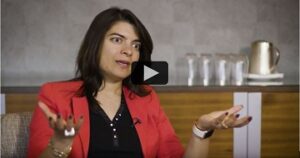What does long-term remote working do for your professional development?
- 5 Min Read
Once seen as a novelty, the ability to work from home has proved to be more than a fad. The significant advancements in communications technology has all but removed the physical barriers from the working world, meaning people can work as effectively from their kitchen tables as they can from their office-based desks.
- Author: DrEsther Canonico
- Date published: Sep 26, 2018
- Categories

A 2016 report by the TUC revealed that the number of employees who said they usually worked from home had increased by nearly a quarter of a million compared to ten years previous, with a total of 4.2 million people in the UK reportedly choosing to work remotely.

Another reason behind the popularity of remote working is the multiple benefits such arrangements seemed to provide to employers and employees alike. Early studies into the effectiveness of flexible working showed that those who were allowed to work from home were more effective in their roles, as they wanted to demonstrate their appreciation and effectiveness to their employers. As a result they often worked harder and longer than office-based staff.
However, such attitudes seem to have changed as remote working has transformed from being perceived as a fad or favour to a fundamental right for an employee.
My own research has investigated both how effective long-term remote working can be and, most importantly, how such long-term separations between the employee and the physical office could impact employee’s career ambition and engagement with the company. This involved surveying over 500 staff and managers on their attitudes towards remote working.
The results revealed that remote working over a prolonged period eroded an employee’s feeling of being awarded a privilege and, as a result, did not feel the need to go the extra mile at work. They were found to work at a similar rate to colleagues working in the office and produced similar results. However, unlike remote workers who went to the company’s office two or three days a week , some remote employees who worked mostly from home reported feeling isolated and began harbouring negative feelings towards their employers.
Although some remote employees recognised the multiple benefits of working from home, they also bemoaned the rising costs of their utility bills, other home costs, and the fact that their employer did not offer to support them.
The research also found remote workers to crave greater personal and professional support. Those who worked from home over long periods communicated less with office-based staff and managers, therefore, found it difficult to be in the loop. Their reduced engagement with the team resulted in a perceived decrease in professional opportunities and company input, meaning their professional growth was limited.
It was not just employees who suffered. Employers also experienced a number of challenges. The research also, worryingly, found that isolated remote working lead to employees acting more like free agents than team players, and had a more transactional view of their relationship with the organisation. Some employees working mostly from home felt less socially and emotionally involved with the organisation than their colleagues. It became difficult to convince remote staff to come into the office after prolonged periods of remote working. Employers, similarly, begin to perceive these staff to be taking advantage of the company.
Despite these challenges, many companies do not have the structures in place to effectively manage remote workers. From my research, I have set out three recommendations for employers to better manage those outside the office;
- Manage expectations:
Long-term remote working is only effective with the correct arrangements in place. Employers should be aware that failing to adequately manage remote workers can result in serious problems as these employees, with little-to-no direction or feedback from their employers, do not know what is expected of them. In order to prevent this, employers should provide remotely-based employees with a set of policies to abide by at the start of their employment contract, to ensure organisational support can be fully utilised, and ensure both parties abide by the agreements set out.
- Develop a better communications strategy:
Working from home can mean that employees have less contact with their employers and colleagues and thus, fall out of the loop, hindering team cohesion. This can have a negative impact upon company compliance and productivity, not to mention the risk of isolating talented, remotely-based staff.
To avoid such instances, an inclusive communications strategy should be implemented and adhered to, by employers and employees from the outset. Employers should also strive to maintain communications with the remote workers, through Skype, or regular catch-up meetings, to help bridge the gap between the home and the office. Employers should also encourage and facilitate group projects, company days etc. to ensure remote employees do not become isolated.
- Create a supportive company culture:
Flexi workers should be supported throughout their time away from their office, as this can prevent any potential ill will. Employees should also be given the opportunity to provide feedback on their experiences of working flexibly so that any areas of concern can be addressed. It is important for employers to remember that those who work from home are just as valuable as those who are in the office, and employers must make this clear to the remote worker.
Remote working is unlikely to be eradicated any time soon, and, as a result, it is essential that employers know how to better manage those that do work from home. Employers must adjust the way they manage remote workers as not doing so can evidently cause many problems.
Dr. Esther Canonico is a Fellow in the fields of Employment Relations and Organisational Behaviour at the London School of Economics’ Department of Management.









